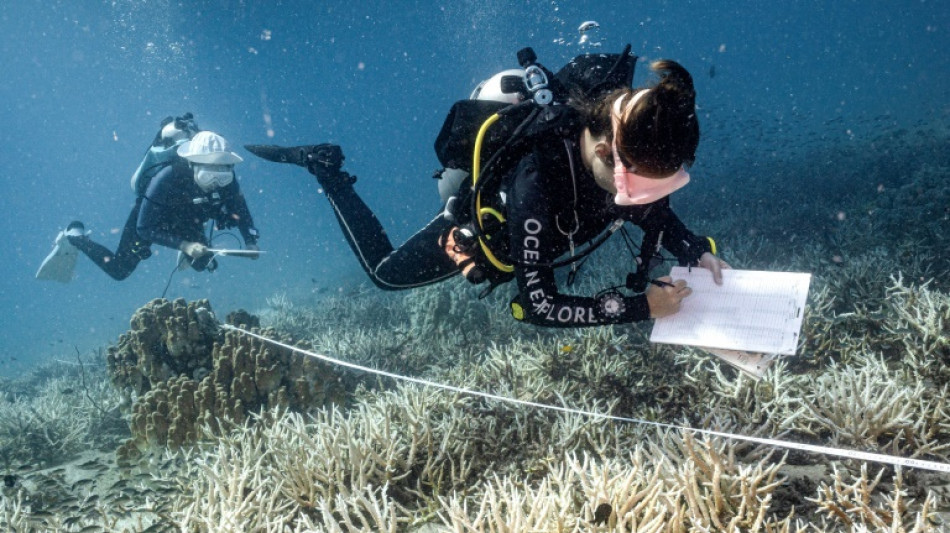
-
 Stock markets mostly higher amid trade talk hopes
Stock markets mostly higher amid trade talk hopes
-
Conclave starts May 7, with cardinals saying new pope must tackle abuse

-
 Massive blackout hits Spain and Portugal
Massive blackout hits Spain and Portugal
-
Ruediger 'must show respect to others' says Germany boss Voeller

-
 As Canada votes, Trump pushes US takeover plan
As Canada votes, Trump pushes US takeover plan
-
Ten on trial in Paris over 2016 gunpoint robbery of Kim Kardashian
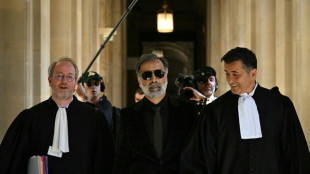
-
 African players in Europe: Salah scores, takes selfies as Reds seal title
African players in Europe: Salah scores, takes selfies as Reds seal title
-
Bangladesh spinner Taijul's 5 wickets trigger Zimbabwe collapse in 2nd Test

-
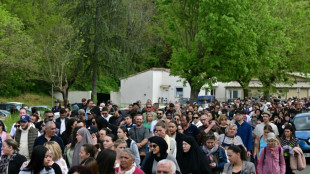 French mosque murder suspect, 21, surrenders in Italy
French mosque murder suspect, 21, surrenders in Italy
-
Mayor Khan keen for London to make Olympics history

-
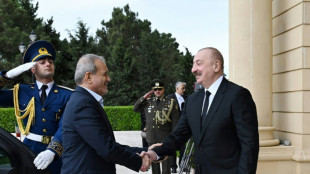 Iranian president visits Azerbaijan as ties warm
Iranian president visits Azerbaijan as ties warm
-
What we know ahead of the conclave
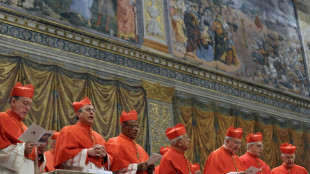
-
 Jannik Sinner launches foundation supporting children
Jannik Sinner launches foundation supporting children
-
Villagers on India's border with Pakistan fear war
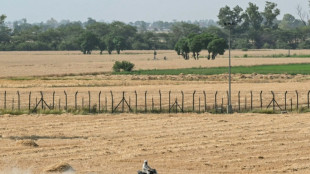
-
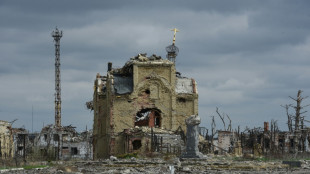 Putin announces surprise Ukraine truce for May 8-10
Putin announces surprise Ukraine truce for May 8-10
-
Conclave to elect new pope starts May 7

-
 Stock markets mostly rise amid trade talk hopes
Stock markets mostly rise amid trade talk hopes
-
India says signs deal with France for 26 Rafale fighter jets

-
 Trump's deep-sea mining order violates global norms: France
Trump's deep-sea mining order violates global norms: France
-
India Kashmir crackdown sparks anger as Pakistan tensions escalate

-
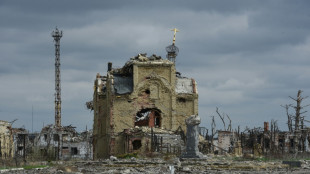 Russia says claims over annexed Ukraine regions key to peace
Russia says claims over annexed Ukraine regions key to peace
-
Austrian climber dies on Nepal mountain

-
 Fires rage 2 days after Iran port blast killed 46
Fires rage 2 days after Iran port blast killed 46
-
Palestinian official tells ICJ Israel using aid blockage as 'weapon of war'

-
 France arrests 25 in police raids after prison attacks
France arrests 25 in police raids after prison attacks
-
Kim Kardashian's next star turn is in a Paris courtroom

-
 Syria group says military chief arrested in UAE
Syria group says military chief arrested in UAE
-
Anger in Indian Kashmir at demolitions and detentions
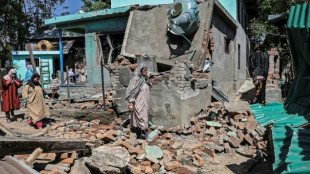
-
 Italy bank merger wave heats up as Mediobanca eyes Banca Generali
Italy bank merger wave heats up as Mediobanca eyes Banca Generali
-
Putin critic Johann Wadephul, Germany's incoming foreign minister

-
 Cardinals expected to pick conclave date to elect new pope
Cardinals expected to pick conclave date to elect new pope
-
French mosque murder suspect arrested in Italy
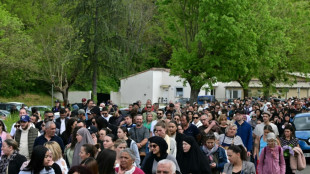
-
 China says on 'right side of history' in trade standoff with US
China says on 'right side of history' in trade standoff with US
-
Stock markets mostly rise as investors eye trade talks

-
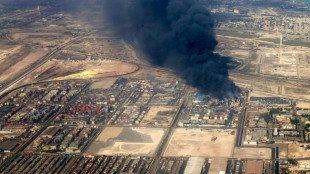 Fires rage 2 days after Iran port blast killed 40
Fires rage 2 days after Iran port blast killed 40
-
Yemen's Huthi rebel media says 68 killed in US strikes on migrant centre
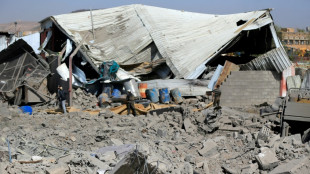
-
 Man rescued from Mount Fuji twice in one week: reports
Man rescued from Mount Fuji twice in one week: reports
-
Canada votes for new government to take on Trump
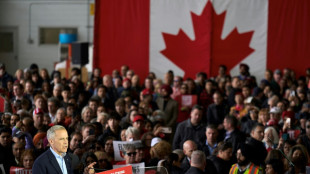
-
 Top UN court to open hearings on Israel's aid obligation to Palestinians
Top UN court to open hearings on Israel's aid obligation to Palestinians
-
Philippines denies 'irresponsible' Chinese report on disputed reef
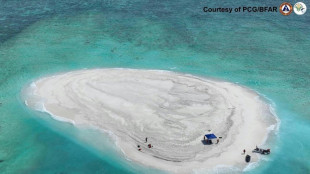
-
 T'Wolves win to push Lakers to brink, Celtics, Knicks and Pacers win
T'Wolves win to push Lakers to brink, Celtics, Knicks and Pacers win
-
Myanmar marks month of misery since historic quake
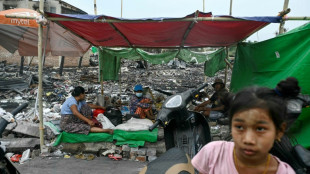
-
 South Korea's SK Telecom begins SIM card replacement after data breach
South Korea's SK Telecom begins SIM card replacement after data breach
-
Women's flag football explodes in US as 2028 Olympics beckon

-
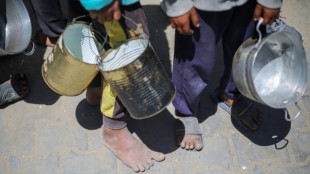 'Hunger breaks everything': desperate Gazans scramble for food
'Hunger breaks everything': desperate Gazans scramble for food
-
Suspect charged with murder in Canada car attack that killed 11

-
 Lost to history: Myanmar heritage falls victim to quake
Lost to history: Myanmar heritage falls victim to quake
-
Romania far-right rides TikTok wave in election re-run

-
 Trial begins in Paris over 2016 gunpoint robbery of Kim Kardashian
Trial begins in Paris over 2016 gunpoint robbery of Kim Kardashian
-
Trump thinks Zelensky ready to give up Crimea to Russia


Countries lock horns over cash for nature at rebooted UN talks
The world's biggest nature conservation conference will restart on Tuesday after negotiations collapsed in disarray last year, with the head of the meeting warning that increasing global "polarisation" was frustrating efforts to protect the planet.
More than two years after a landmark deal on nature -- including a pledge to protect 30 percent of the world's land and seas by 2030 -- nations continue to haggle over the money needed to reverse destruction that scientists say threatens a million species.
Negotiators meeting at the UN's Food and Agriculture Organization headquarters in Rome this week are tasked with breaking a deadlock on funding between rich and developing countries that saw COP16 talks in Cali, Colombia end without agreement in November.
The leader of the UN negotiations, Colombian Environment Minister Susana Muhamad, said countries need to "substantially address these existential crises of biodiversity loss and climate change".
But she said progress in Cali was hamstrung by international rifts.
"Why do we have such polarisation around that issue?" she told a press conference on Monday.
"It has to do, I think in my perspective, with the changing landscape of power in geopolitics, and it has also to do with the requirements that armed conflicts are putting on finance of countries."
Muhamad did not mention specifics, but policymakers in wealthy nations are facing challenges from trade tensions to the war in Ukraine.
The re-election of Donald Trump is also casting a shadow, despite the United States not having signed up to the UN's Convention on Biological Diversity.
- Funding fight -
Muhamad said she was "hopeful" that discussions since the Cali meeting have helped to lay the groundwork for a resolution in Rome.
Countries have until Thursday to hammer out a plan to reach a promised $200 billion a year in finance for nature by 2030, including $30 billion a year from wealthier countries to poorer ones.
The squabble in Cali was mainly over the way in which that funding is delivered.
Developing nations -- led by Brazil and the African group -- want the creation of a new, dedicated biodiversity fund, saying they are not adequately represented in existing mechanisms.
Wealthy nations -- led by the European Union, Japan and Canada -- say setting up multiple funds fragments aid.
On Friday, the COP16 presidency published a new text that seeks to navigate around the "red lines" of each bloc of countries, according to Aleksandar Rankovic of the Common Initiative think tank.
The document proposed kicking the ultimate decision on a new biodiversity fund to future UN talks, while suggesting reforming existing financing for nature conservation.
Observers will be watching closely to see if developed countries, including those in budgetary crises like France and Germany, can be persuaded to agree.
In 2022, nations identified 23 goals to be achieved within the decade, designed to protect the planet and its living creatures from deforestation, over-exploitation of resources, climate change, pollution and invasive species.
The true cost of such destruction of nature is often hidden or ignored, scientists warned last year in a landmark report for the UN's expert biodiversity panel.
They estimated that fossil fuels, farming and fisheries could inflict up to $25 trillion a year in accounted costs -- equivalent to a quarter of global GDP.
The failure to reach agreement in Cali was the first in a string of disappointing outcomes for the planet at UN summits last year.
A climate finance deal at COP29 in Azerbaijan in November was slammed as disappointing by developing nations, while in December negotiators failed to produce an agreement on how to respond to drought at Saudi-hosted UN desertification talks.
Divisions between countries also stalled negotiations in South Korea's Busan on the world's first treaty to tackle plastic pollution in December.
L.Miller--AMWN
